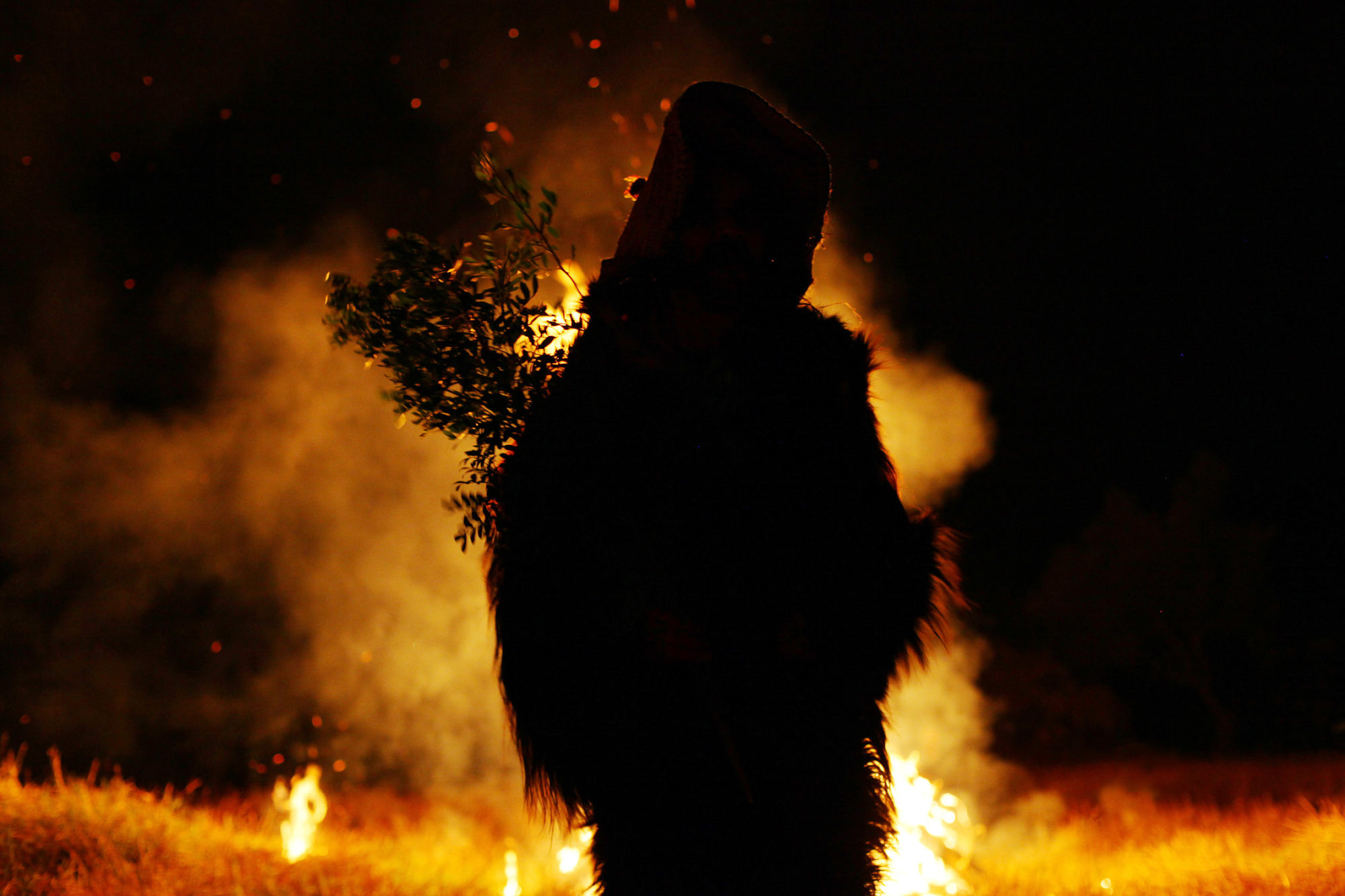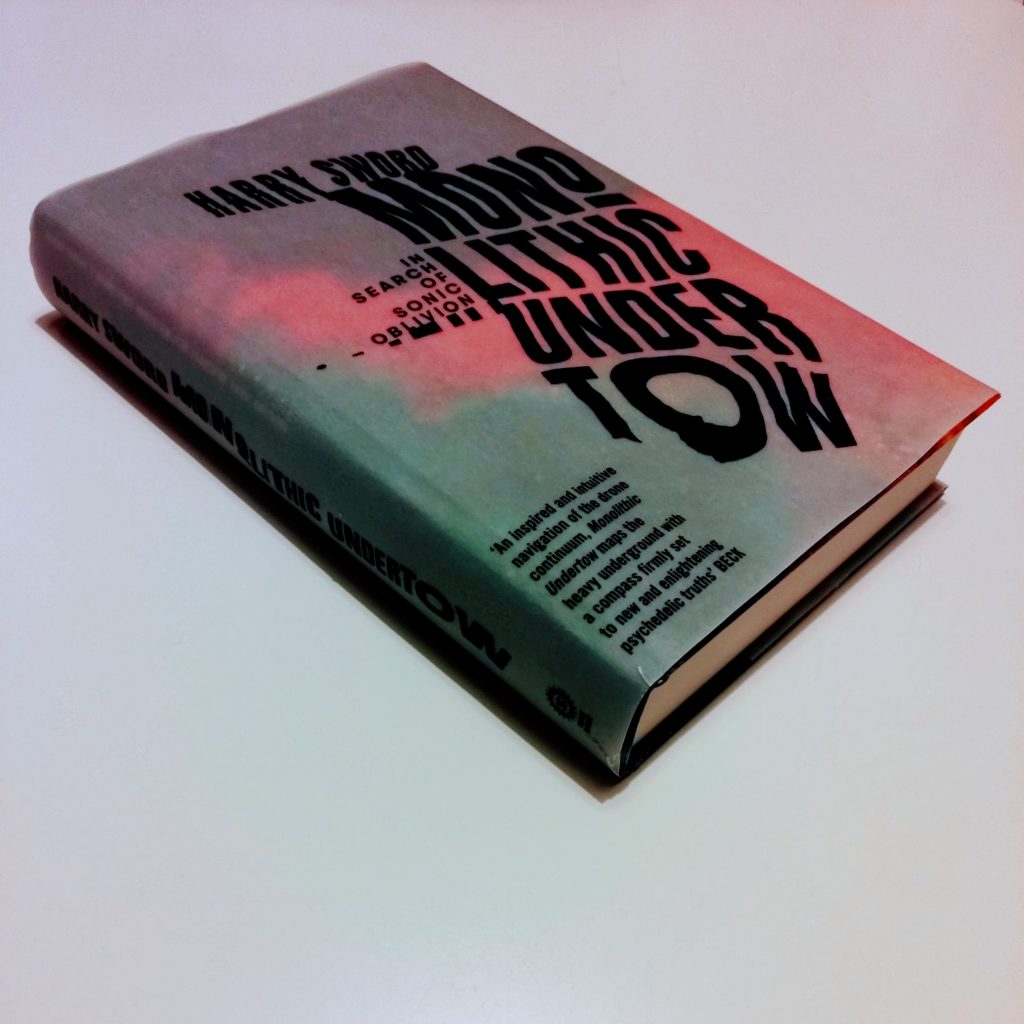
The new all-encompassing history of the mighty drone – Monolithic Undertow: In Search Of Sonic Oblivion by Harry Sword is published this week.
According to the publisher’s notes, Monolithic Undertow “alights a crooked path across musical, religious and subcultural frontiers. It traces the line from ancient traditions to the modern underground, navigating archaeoacoustics, ringing feedback, chest plate sub-bass, avant-garde, eccentricity, sound weaponry and fervent spiritualism”.
The book is available now from all good bookshops through White Rabbit Books.
A full chapter of the book is devoted to ecstatic music and Moroccan trance music features prominently, including extensive exploration into the impact of the Master Musicians of Joujouka.
Master Musicians of Joujouka manager Frank Rynne is interviewed in depth on his 25 years working with the group, their music, history and influence. “The music has an extraordinary effect,” he said. “They reach a point where you think “that is as far as they can go; they couldn’t possibly keep it at that pitch” but then the lead rhaita player goes up a little bit and the drone shifts up and the drummer gets up a level. And it goes on and on and on.”
Tracing a line through from the ancient origins of the Master Musicians’ Sufi trance music to the present day, Sword writes: “It wasn’t until the 1950s, however, that the Joujouka sound began to permeate beyond the Rif mountains, bewitching the emergent Beat culture as a viscerally intense audio counterpoint to the surreal dreamscape of the Tangier Interzone. That it has since been disseminated globally through counterculture figures like Brian Jones and Ornette Coleman – both of whom recorded in Joujouka – makes perfect sense. After all, the best rock ‘n’ roll and free jazz are about abandon, liberation, the breaking of restrictions, an embrace of the animalistic.”
Sword goes on to explore how the music of the Master Musicians of Joujouka played a part in influencing later experiments by Brion Gysin and William S. Burroughs, in their writing and creating hallucinatory trance like states with the invention of stroboscopic light device the dreammachine – an effect similar to the impact of the music they heard in Morocco.
Monolithic Undertow is the first book by Cambridge-based writer Harry Sword, who is a regular contributor to The Quietus, Vice, Record Collector and The Guardian. It is the first book of its kind to focus solely on drone and also features writing on The Beatles, Ravi Shankar, John Coltrane, Alice Coltrane, The Velvet Underground, The Stooges, Ash Ra Tempel, Melvins and Sunn O))) among many more.
The minimalist music of composer Terry Riley, who the Master Musicians of Joujouka met on tour in Japan in 2017, is also discussed in detail.
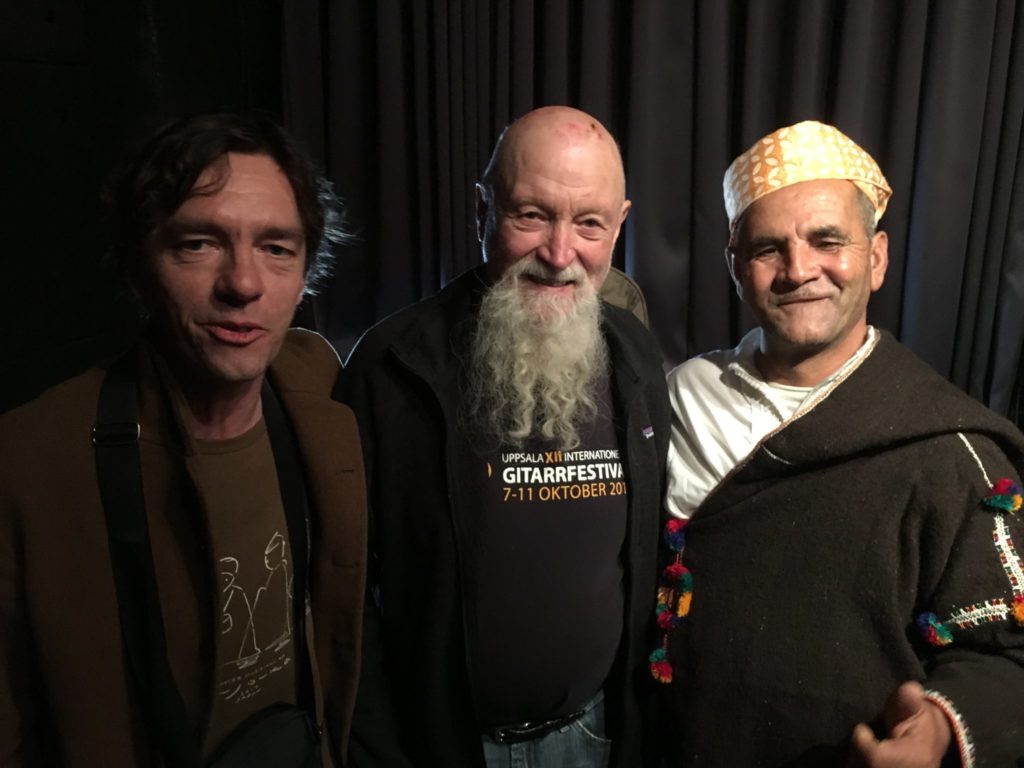
Ahead of the book’s publication the album Brian Jones Presents The Pipes Of Pan At Joujouka was featured in an article by the author on starting points into a journey of drone music published in The Guardian.
Author Harry Sword invited readers to “turn on, tune in, drone out” in the article No drone unturned: tracing the sound that unites ancient and modern
Read an excerpt:
Brian Jones Presents The Pipes Of Pan At Joujouka
The Master Musicians of Joujouka, a group of Moroccan Sufi trance musicians from the foothills of the Rif mountains, make a joyous, hypnotic cacophony. Their sound dates back centuries, using techniques passed from father to son. Long associated with the beat poets, who gravitated to bohemian Tangier throughout the 1950s and 60s, the Master Musicians of Joujouka were introduced to writers Paul Bowles and Brion Gysin by Moroccan painter Mohamed Hamri, whose uncle was one of the bandleaders. Gysin, in particular, was captivated by the music, stating that it was the sound that he wanted to hear for the rest of his life. He later employed the Masters as house band in the 1001 Nights restaurant that he ran in Tangier with Hamri.
Hamri also introduced his friend, Rolling Stone Brian Jones, to the Masters. In 1968, Jones recorded this live album, capturing the sound of the annual Boujeloud festivities that celebrate the appearance in the 15th century of a Pan-like half-man, half-goat figure said to bestow fertility, a bountiful harvest and musical secrets. Each year a villager plays the Bou Jeloud: sewn into freshly slaughtered goat skins, he exhorts people to dance by whacking them with olive branches, while the music focuses on fever-pitch pipe drones, gruff call-and-response chants, ethereal flutes and frenetic handheld drums.
The Master Musicians of Joujouka strongly contest the notion that drone-based music is calming: theirs is an energetic, frenetic sound. Jones’s sensitive post-production dub effects (mainly echo and reverb) were subtle, but add to the head-twisting psychedelic density of the music.
Read the full article published in The Guardian here
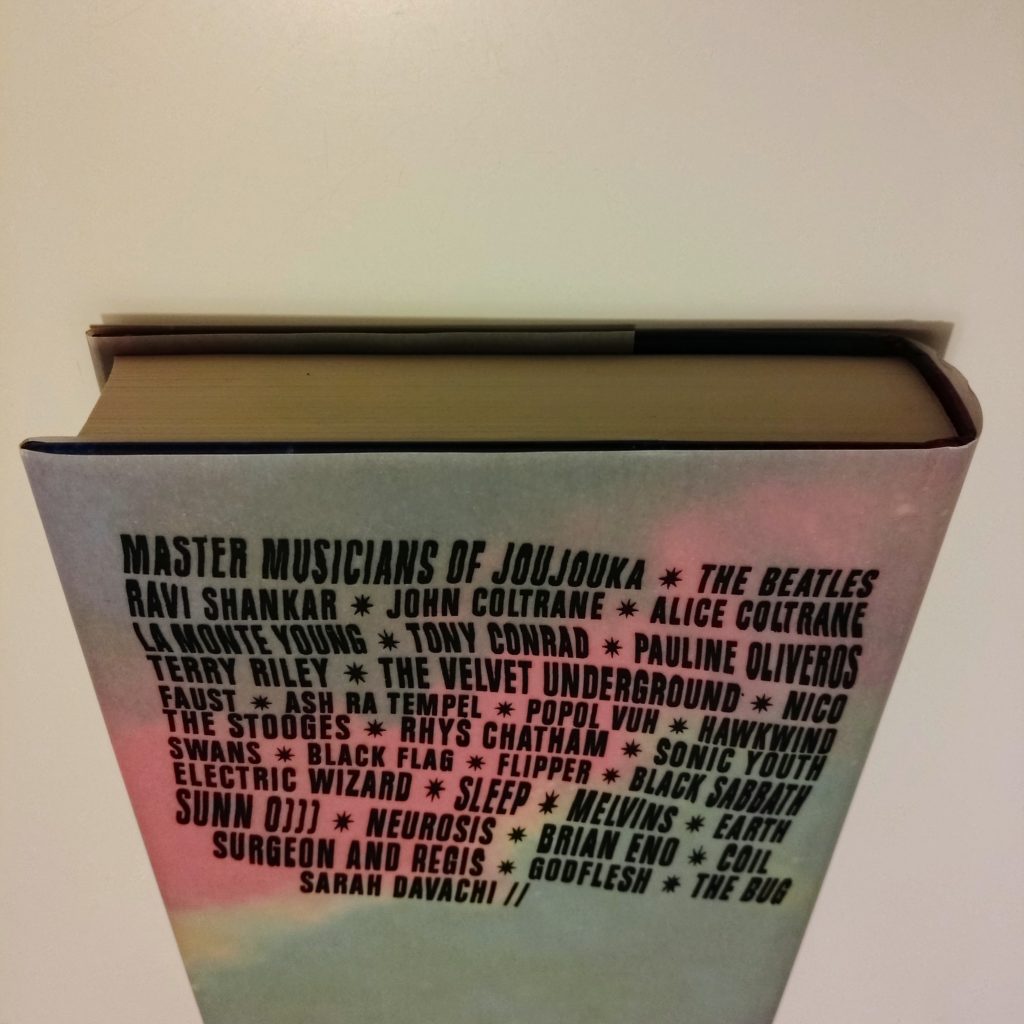
Read more via White Rabbit Books here
Pre-order your copy here
More information about Monolithic Undertow: In Search Of Sonic Oblivion here
